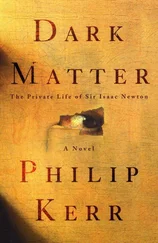Philip Kerr - A Man Without Breath
Здесь есть возможность читать онлайн «Philip Kerr - A Man Without Breath» весь текст электронной книги совершенно бесплатно (целиком полную версию без сокращений). В некоторых случаях можно слушать аудио, скачать через торрент в формате fb2 и присутствует краткое содержание. Год выпуска: 2013, Издательство: Quercus, Жанр: Триллер, на английском языке. Описание произведения, (предисловие) а так же отзывы посетителей доступны на портале библиотеки ЛибКат.
- Название:A Man Without Breath
- Автор:
- Издательство:Quercus
- Жанр:
- Год:2013
- ISBN:нет данных
- Рейтинг книги:4 / 5. Голосов: 1
-
Избранное:Добавить в избранное
- Отзывы:
-
Ваша оценка:
- 80
- 1
- 2
- 3
- 4
- 5
A Man Without Breath: краткое содержание, описание и аннотация
Предлагаем к чтению аннотацию, описание, краткое содержание или предисловие (зависит от того, что написал сам автор книги «A Man Without Breath»). Если вы не нашли необходимую информацию о книге — напишите в комментариях, мы постараемся отыскать её.
A Man Without Breath — читать онлайн бесплатно полную книгу (весь текст) целиком
Ниже представлен текст книги, разбитый по страницам. Система сохранения места последней прочитанной страницы, позволяет с удобством читать онлайн бесплатно книгу «A Man Without Breath», без необходимости каждый раз заново искать на чём Вы остановились. Поставьте закладку, и сможете в любой момент перейти на страницу, на которой закончили чтение.
Интервал:
Закладка:
‘That’s what it said on my message to the ministry, didn’t it?’
‘Do you reckon they murdered them out there?’
‘That’s certainly what it looks like,’ I said. ‘Brought them to the side of an open grave in twos and threes and shot them in the back of the head.’
The younger signaller, whose name was Lutz and who was manning the switchboard, answered a call only he heard and began to shift the cables in the switchboard around like so many chess pieces.
‘General von Tresckow,’ he said into his headset. ‘I have General Goerdeler for you, sir.’
‘Makes you think what we’re fighting, eh, sir?’ said Quidde.
‘Yes, it certainly does,’ I said. ‘We certainly can’t teach Ivan anything about cruelty, murder and deceit.’
‘You know, I’ve often had a peculiar feeling that something was not quite right about this place,’ said Quidde.
‘I get that feeling back in Berlin, sometimes,’ I said, being deliberately ambiguous again; it was up to Quidde what he chose to hear. ‘When I’m visiting friends who live near the old Reichstag. I don’t believe in ghosts myself, but it’s easy to understand why so many others do.’
Lutz started to deal with another call on the switchboard.
I offered Quidde a cigarette to try to fool him into thinking I was an all-round decent guy. He didn’t expect a white rabbit of course, but for a couple of free cigarettes he seemed prepared to pretend that my black hat might just be empty; it’s why people like me smoke, I guess. In return he served me some hot Russian tea in a little glass with a lump of real sugar, and while I waited to receive confirmation that the ministry had received my message in full, Quidde asked me if any progress had been made in identifying the murderer of his two fellow signallers, Sergeant Ribe and Corporal Greiss.
I shook my head. ‘I appreciate that those men were comrades of yours, corporal,’ I told Quidde. ‘But really, I’m the wrong man to ask about it. I’m not the investigating officer. It’s Lieutenant Voss of the field police who’s working that case. You should ask him, or the colonel, of course.’
‘Maybe so, sir,’ said Quidde. ‘But with all due respect to Lieutenant Voss, sir, he’s not a detective, is he? He’s just the local kennel hound. And as for the colonel, well, all he really cares about are his bloody bees. Look, sir, everyone here at the castle knows that before you were in the SD you used to be a top bull at the Alex.’
‘Not even a top donkey, corporal.’ I grinned. ‘Thanks, but they gelded all the best cops back in thirty-three.’
‘And everyone knows it was Voss and the colonel who asked you to go down to the Hotel Glinka to take a look at the crime scene. The word is that it was you who figured it wasn’t an Ivan that killed them – who chalked out another Fritz for it. And now everyone figures you’re still interested in finding out who killed them, on account of how it was you that was trying to get that rapist bastard they hanged last Saturday to give up what he knew about the murders.’
‘Colonel Ahrens,’ said Lutz. ‘I have Lieutenant Hodt for you, sir.’
I shrugged and sipped my sweet tea before lighting one up for myself – one of the several handfuls of Trummers and a bottle of cognac I had stolen from Joey’s private plane on the flight down from Berlin; the cognac was long gone but the cigarettes were lasting nicely. I breathed the biscuity-smelling smoke deep into the walls of my chest, and as I paused to wait for my head to clear I pondered how to answer the corporal’s perfectly reasonable arguments. He was right, of course: in spite of Von Kluge’s fairly explicit order to forget all about the case of the two dead signallers, I was still very much interested in finding out who killed them. It takes a lot to shoo me away from a real crime; others – one or two of them even more powerful than Field Marshal von Kluge – had tried to warn me off something before, and it didn’t take then, either. We Germans have a great capacity for ignoring other people and what they tell us; it’s what makes us so damned German. It’s always been like that, I guess. Rome tells Martin Luther to lay off and does he lay off? – does he hell. Beethoven goes deaf and, in spite of what his doctors advise, he carries on writing music – well, who needs ears to listen to a whole symphony? And if a mere field marshal stands in the way of your investigation’s progress then you simply go over his head, to the minister of propaganda. Von Kluge was going to love me when he discovered what I’d done. And my continuing interest in the murders of Ribe and Greiss would be of small consequence beside the greater irritation that would plague him when Joey the Crip pulled rank over Clever Hans and told him that Dr Batov was to be allowed to come to Berlin after all – because I had no doubt the minister would agree to it. One thing you could say in defence of Joseph Goebbels was that he always knew a good thing when he saw it.
‘Some people don’t mind loose ends,’ I said. ‘But me, I always like to make the ends meet and sometimes tie a nice bow with them. I was in the trenches during the last war, Corporal Quidde. It bothered me then when men got killed for no good reason, and it bothers me now. Look, I tried my best. But it was no damned good. The fellow wouldn’t talk. Always assuming he really did know something about what happened. I wouldn’t have put it past Hermichen to have strung me along, just for the sheer joy of it. Maybe he was playing for time. Murderers are like that, sometimes. If we believed everything they told us the prisons would be empty and the guillotines would rust over.’
Quidde was spared from having to answer; he pressed a hand to his headphones as the Torn woke from its sleep like the robot in Metropolis .
‘I think this must be your acknowledgement from Berlin, sir,’ he said, and picking up a pencil he began to write.
When he had finished he handed the message to me and waited patiently while I read it.
YOUR MESSAGE ACKNOWLEDGED. MINISTRY OF PUBLIC ENLIGHTENMENT AND PROPAGANDA. AWAIT FURTHER ORDERS.
Underneath that message was another:
BE CAREFUL WHAT YOU SAY. LUTZ IS GESTAPO. THEY RECRUITED HIM WHILE HE WAS STILL AT SIGNALS SCHOOL IN LUBECK. DON’T WANT TO SAY ANYTHING IN FRONT OF HIM. I HAVE INFORMATION ABOUT RIBE AND GREISS THAT MIGHT HAVE A BEARING ON THEIR DEATHS BUT I AM WORRIED THIS COULD GET ME KILLED. MEET ME IN THE GLINKA GARDEN ON WEDNESDAY AFTERNOON AT FOUR PM AND COME ALONE. NOD IF YOU AGREE.
I nodded. ‘Yes, that’s fine,’ I said, and put the folded-up message in my pocket.
CHAPTER 4
Wednesday, March 31st 1943
Goldsche had appointed Judge Conrad to be in overall charge of the Katyn Wood investigation for the bureau. Conrad was a senior judge from Lomitz, near Wittenberg, and while he could be a little gruff, I liked him. In his early fifties, Conrad had served with distinction in the Great War. After a stint as a public prosecutor in Hildesheim he had joined the Army Justice Service in 1931 and had been a lawyer in the army ever since. Like most of the judges in the War Crimes Bureau, Johannes Conrad was no Nazi, and so neither of us felt comfortable at the idea of working closely with Army Group Centre’s own advisory coroner, Dr Gerhard Buhtz, who Von Kluge had succeeded in imposing on the bureau’s bosses as the man in charge of the forensic part of the investigation.
On the face of it, Buhtz, a former professor of forensic medicine and criminal law from Breslau University and an expert on ballistics, was extremely well qualified, but he certainly wouldn’t have been my choice or Conrad’s for such a politically sensitive role, since prior to his appointment in August 1941 as the coroner of Army Group Centre, Gerhard Buhtz had been a colonel in the SS and an early member of the Nazi Party. Buhtz had also been the head of the SD in Jena, and Conrad argued that his being part of our investigation was a not-so-subtle attempt by Von Kluge to undermine it from the very outset.
Читать дальшеИнтервал:
Закладка:
Похожие книги на «A Man Without Breath»
Представляем Вашему вниманию похожие книги на «A Man Without Breath» списком для выбора. Мы отобрали схожую по названию и смыслу литературу в надежде предоставить читателям больше вариантов отыскать новые, интересные, ещё непрочитанные произведения.
Обсуждение, отзывы о книге «A Man Without Breath» и просто собственные мнения читателей. Оставьте ваши комментарии, напишите, что Вы думаете о произведении, его смысле или главных героях. Укажите что конкретно понравилось, а что нет, и почему Вы так считаете.












